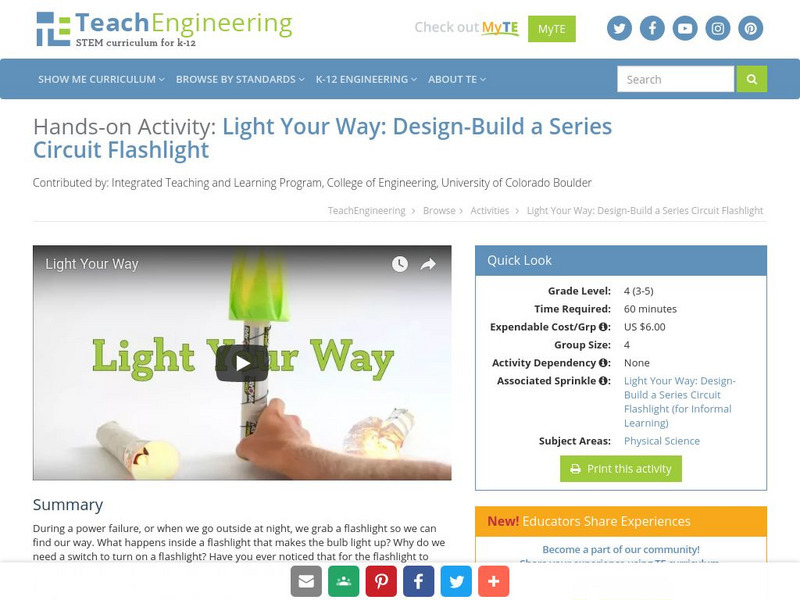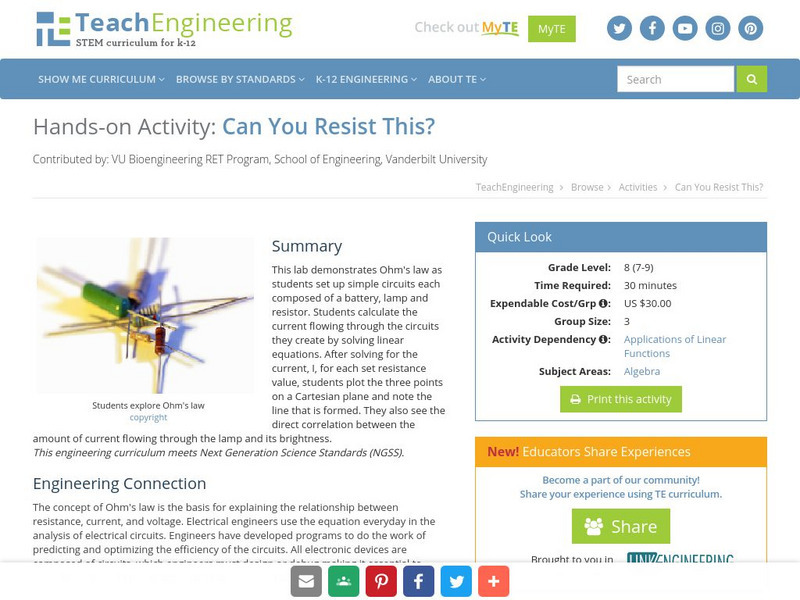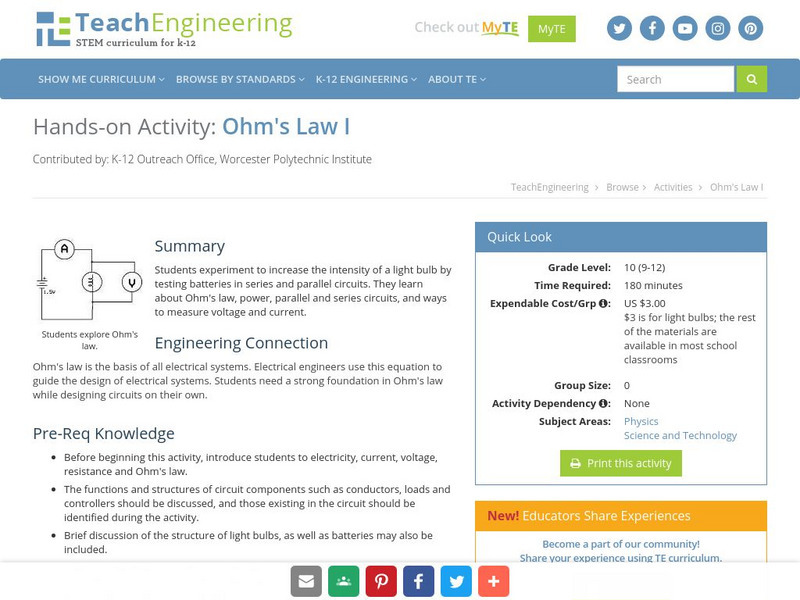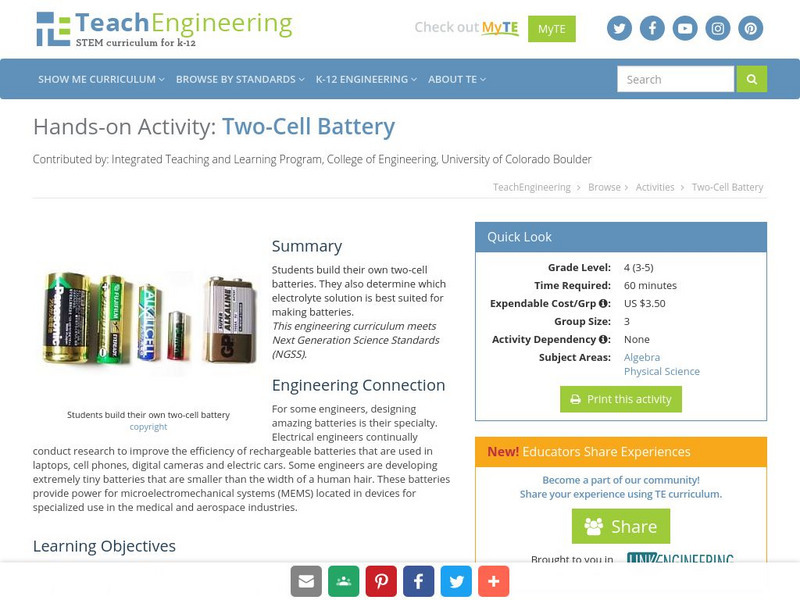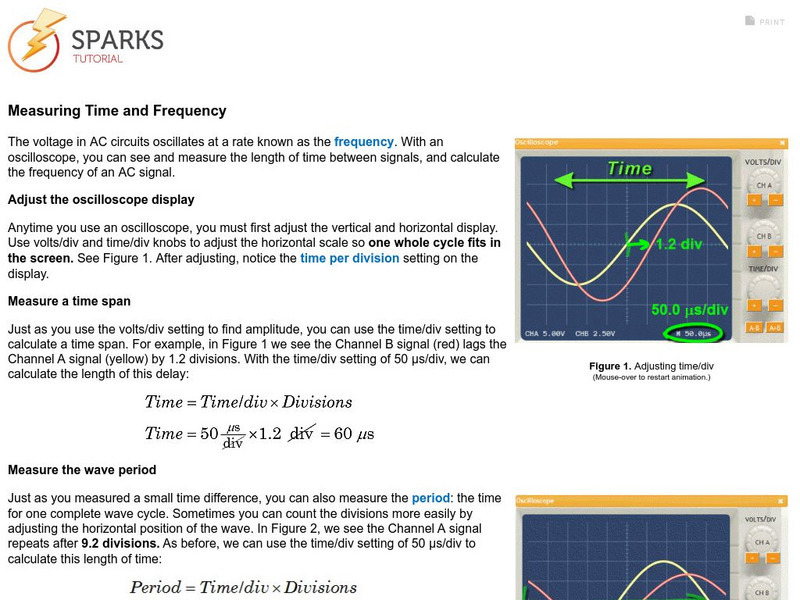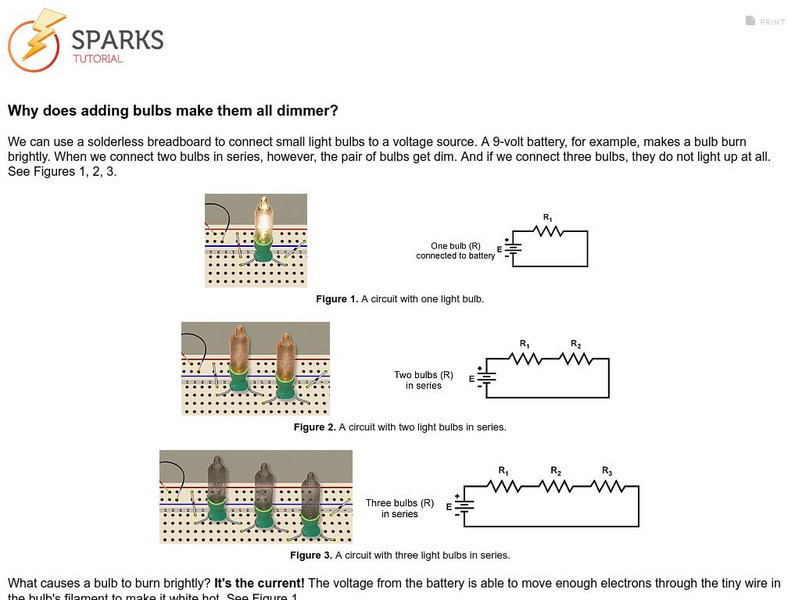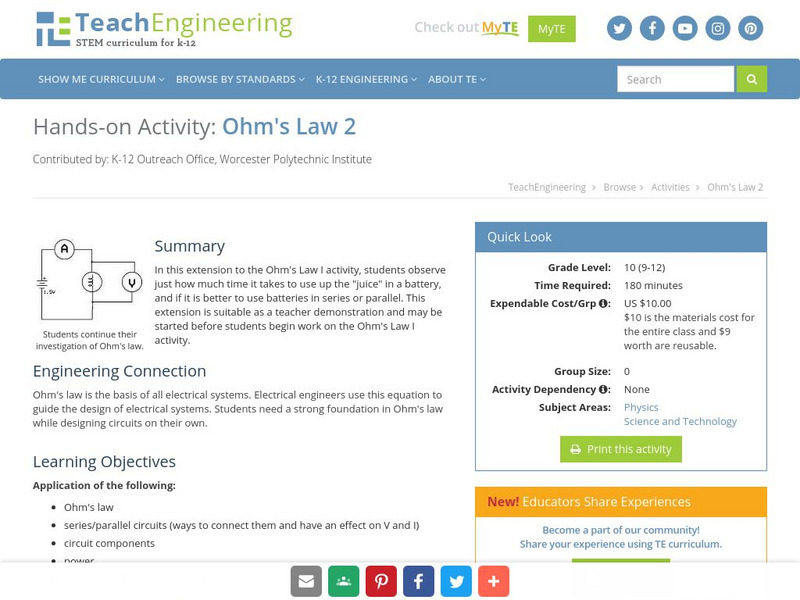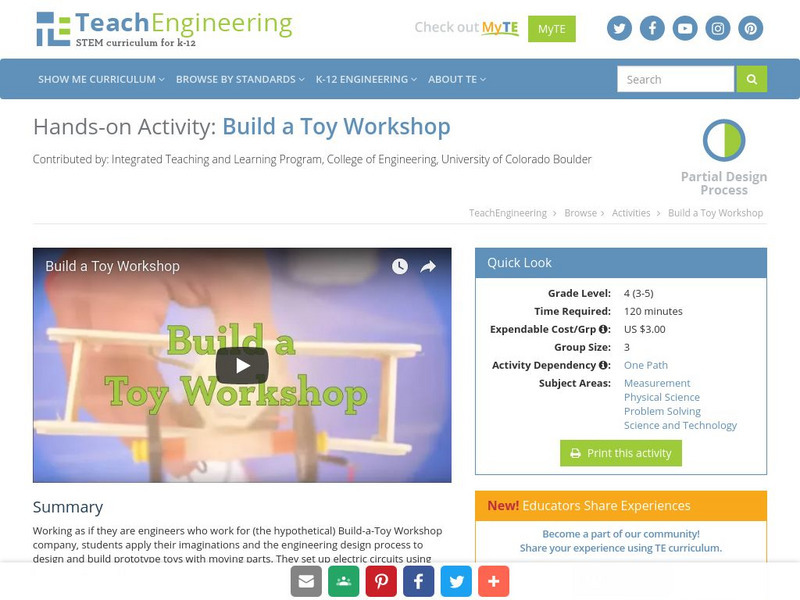TeachEngineering
Teach Engineering: Bulbs & Batteries Side by Side
We are surrounded everyday by circuits that utilize "in parallel" and "in series" circuitry. Complicated circuits designed by engineers are made of many simpler parallel and series circuits. In this hands-on activity, students build...
TeachEngineering
Teach Engineering: Light Your Way
When there is a power failure, or when we go outside at night, we grab a flashlight so we can find our way. What happens inside a flashlight that makes the bulb light up? Why do we need a switch to turn on a flashlight? Have you ever...
TeachEngineering
Teach Engineering: Can You Resist This?
This lab demonstrates Ohm's law as students set up simple circuits each composed of a battery, lamp and resistor. Students calculate the current flowing through the circuits they create by solving linear equations. After solving for the...
TeachEngineering
Teach Engineering: Conductivity
Students make a simple conductivity tester using a battery and light bulb. They learn the difference between conductors and insulators of electrical energy as they test a variety of materials for their ability to conduct electricity.
TeachEngineering
Teach Engineering: Ohm's Law I
Students will work to increase the intensity of a light bulb by testing batteries in series and parallel circuits. It analyzes Ohm's Law, power, parallel and series circuits, and ways to measure voltage and current.
TeachEngineering
Teach Engineering: Potato Power
Students use potatoes to light an LED clock (or light bulb) as they learn how a battery works in a simple circuit and how chemical energy changes to electrical energy. As they learn more about electrical energy, they better understand...
TeachEngineering
Teach Engineering: Simple Coulter Counter
Students build and use a very basic Coulter electric sensing zone particle counter to count an unknown number of particles in a sample of "paint" to determine if enough particles per ml of paint exist to meet a quality standard. In a lab...
TeachEngineering
Teach Engineering: Pointing at Maximum Power for Pv
Student teams measure voltage and current in order to determine the power output of a photovoltaic (PV) panel. They vary the resistance in a simple circuit connected to the panel to demonstrate the effects on voltage, current, and power...
TeachEngineering
Teach Engineering: Two Cell Battery
In this hands-on activity, students build their own two-cell battery. They also determine which electrolyte solution is best suited for making a battery.
TryEngineering
Try Engineering: Flashlights and Batteries
Students work in teams to explore how a flashlight works. This activity examines the topics of batteries, electron flow, circuit systems, switches, and bulbs.
Science Education Resource Center at Carleton College
Serc: Learning the Science Behind Electricity
Following a PowerPoint lecture, students will participate in a laboratory investigation where they dissect a disposable camera.
TeachEngineering
Teach Engineering: How Does a Robot Work?
This lesson introduces electricity, batteries and motors using a LEGO MINDSTORMS NXT robot. The associated activity guides learners to build a simple LEGO NXT set-up and see the practical implementation of the concepts discussed. Before...
Science and Mathematics Initiative for Learning Enhancement (SMILE)
Smile: Resistances in Series and Parallel Circuits
A teacher lesson plan is provided here. This page describes two activities in which the effect of multiple resistors on the current and overall resistance of both series and parallel circuits are investigated. Complete activity...
Science and Mathematics Initiative for Learning Enhancement (SMILE)
Smile: Simple Circuitry and Series Circuit
A teacher lesson plan which could be easily converted into an idea for a student project or presentation. This page describes an activity in which the basic nature of a circuit and the concepts of a series circuit are investigated....
Concord Consortium
Concord Consortium: Calculating Reactance
Find out how the current in a circuit can be impeded by three types of circuit components.
Concord Consortium
Concord Consortium: Measuring Time and Frequency
The voltage in AC circuits oscillates at a rate known as the frequency. With an oscilloscope, see and measure the length of time between signals, and calculate the frequency of an AC signal.
Concord Consortium
Concord Consortium: Why Does Adding Bulbs Make Them All Dimmer?
This tutorial illustrates why adding bulbs to a circuit makes all the bulbs dimmer.
PBS
Pbs Teachers: Saltwater Tester
Explore circuits and the flow of electricity. Create a saltwater tester using a battery and electrical buzzer.
TeachEngineering
Teach Engineering: Bulbs & Batteries in a Row
Everyday we are surrounded by circuits that use "in parallel" and "in series" circuitry. Complicated circuits designed by engineers are composed of many simpler parallel and series circuits. During this activity, students build a simple...
TeachEngineering
Teach Engineering: Ohm's Law 2
This extension to the Ohm's Law I activity, students will observe just how much time it takes to use up the "juice" in a battery, and if it is better to use batteries in series or parallel.
Science Buddies
Science Buddies: Build a Mini Led Lightsaber
Build your own mini LED lightsaber with a straw in this quick Star Wars-themed STEM activity.
TeachEngineering
Teach Engineering: Electrocardiograph Building
This activity will build upon the concepts taught in the lesson The Strongest Pump of All. The activity will pull together the concepts of bioelectricity, electrical circuits, and biology. It will allow the students the opportunity to...
TeachEngineering
Teach Engineering: Build a Toy Workshop
Working as if they are engineers who work for (the hypothetical) Build-a-Toy Workshop company, students apply their imaginations and the engineering design process to design and build prototype toys with moving parts. They set up...
Science and Mathematics Initiative for Learning Enhancement (SMILE)
Smile: Batteries and Bulbs
For the teacher planning a lesson or for the student preparing for a project or presentation. This page describes an activity in which parallel and series circuits are constructed using batteries and bulbs. Complete activity directions...

